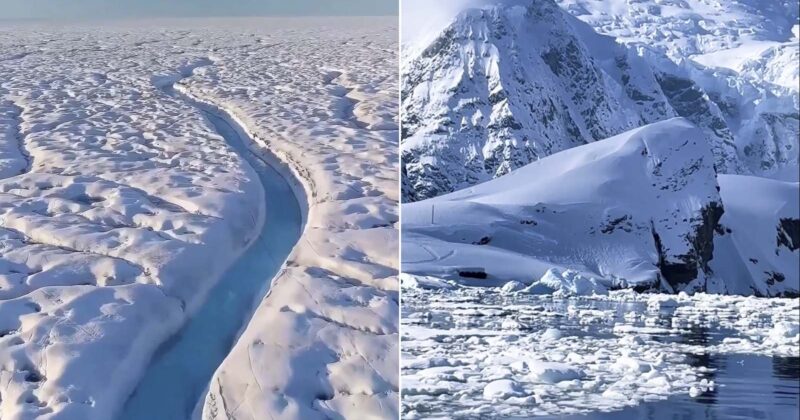In high school, the doomsday scenarios regarding global warming were endless. Back in 2007, the climate change cult said the Arctic Ice Cap would vanish. It didn’t. When 2013 hit, it gained about 530,000 square miles of ice. Still, the con is on with the Green Left, who claims they were on the verge of total destruction.
In the 1970s, global cooling and North American re-glaciation would imperil humanity. They were wrong then, and they’re wrong now. The Green Movement has been exposed as a backdoor communist push, spearheaded by the wealthy and the elites to further screw over working Americans via intentional economic sabotage. These folks can soak up the costs, and a great many love to hobnob at these exclusive global warming retreats, which also gives them an opportunity to fire up those private jets.
REPORT: Antarctica reverses trend and gains ice for the first time in decades, according to a new study published by Science China Earth Sciences.
Researchers say from 2021-2023, the Antarctic Ice Sheet saw a record-breaking mass *gain.*
Tongji University researchers say… pic.twitter.com/mOtm0NxczK
— Collin Rugg (@CollinRugg) May 4, 2025
Well, the doomsday global warming cult’s agenda of making us poorer to protect us against something that doesn’t exist took another body blow this week. Antarctica gained a ton of ice (via KTVU):
A study published this week in Science China Earth Sciences finds that the Antarctic Ice Sheet (AIS) experienced a record-breaking mass gain between 2021 and 2023, largely due to anomalous increases in precipitation. The rebound is especially significant in East Antarctica, where four major glacier basins had previously shown signs of destabilization.
[…]
Big picture view: Researchers from Tongji University and other institutions analyzed satellite gravimetry data from the GRACE and GRACE-FO missions, which measure variations in Earth’s gravity to detect changes in ice mass.
They found that between 2011 and 2020, the AIS was losing ice at a rate of 142 gigatons per year. But between 2021 and 2023, the trend reversed, with the ice sheet gaining approximately 108 gigatons per year — a historic turnaround.
[…]
The most notable gains were in East Antarctica’s Wilkes Land and Queen Mary Land region, including the Totten, Denman, Moscow University, and Vincennes Bay glacier basins. These glaciers had been losing mass at an accelerating rate from 2011 to 2020 — driven by surface melting and faster ice discharge into the ocean — but now appear to have partially recovered.
Scientists warn, however, that this shift doesn’t mean the climate crisis is over. The gains were linked to unusual precipitation patterns, which may be temporary.

